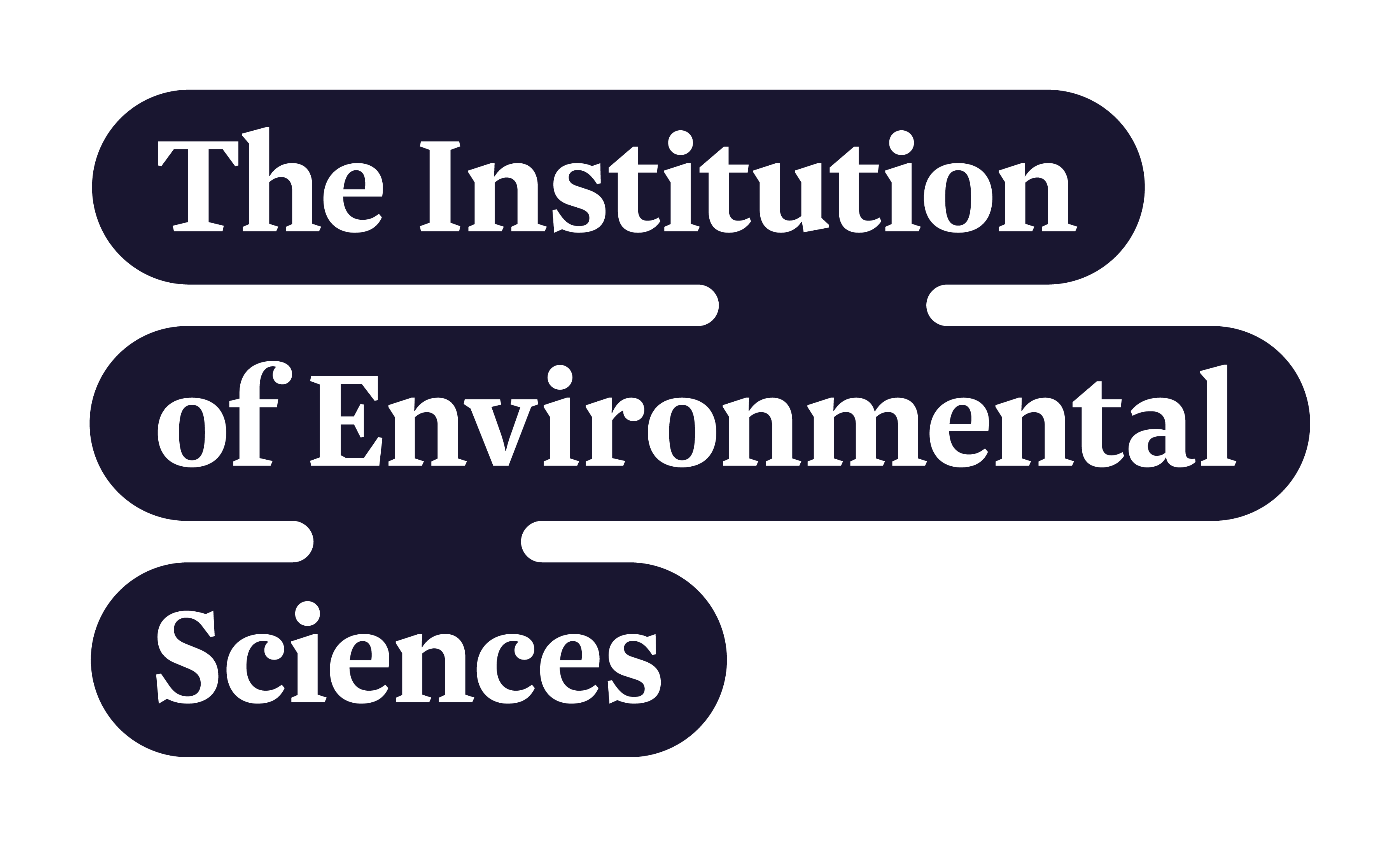And every other week of the year…
Joseph Lewis is Policy Lead at the Institution of Environmental Sciences, working to promote the use of the environmental sciences in decision making. Joseph leads the delivery of the IES Policy Programme, standing up for the voice of science, scientists, and the natural world in policy.
Joseph has ten years of experience in public policy, including in Parliament and the charity sector. He is particularly passionate about science communication and the role it can play in shaping environmental decisions.
Last month, London Climate Action Week (LCAW) brought voices from around the world to London to accelerate global climate action, spotlighting the issues and the importance of coordination.
Yet every other week of the year (excluding the UNFCCC COPs), the reality of climate action is not festival events or media attention: most of the difficult work comes down to the ‘in the roots’ delivery and adaptation in practice that takes place between marquee events.
Also in June, the Climate Change Committee (CCC) published its report on UK emission reduction, arguing that the UK is “among a leading group of economies demonstrating consistent and sustained decarbonisation”, but recognising that “continued reliance on fossil fuels undermines UK energy security” and that for 39% of the UK’s plans to reach its 2030 NDC, “there are either significant risks, or insufficient or unquantified plans”.
In a world of polarisation, it’s easy to forget that it’s possible to be taking a leading stance and still not be doing enough. Even as London played a leading role in advancing conversations around climate, those discussions are immaterial without urgent and ambitious action to deliver climate commitments.
For the latest information on the UK’s climate progress, read the CCC report.
What does Climate Change Committee’s report say?
The key messages from the report are clear and simple: the effects of climate change are real and urgent, and we should expect them to compound in the coming years. The UK is broadly on track to meet its ambitious targets, but more needs to be done, particularly in a handful of problematic sectors.
Highlights: Good news
- Reducing emissions: UK emissions have continued to decline, now more-or-less half what they were in 1990. The big success story over the past year has been around the electricity supply and industrial decarbonisation, led by the UK’s mission to be a clean energy superpower.
- Increased credibility: The CCC has highlighted the increased credibility of UK commitments over the past year, particularly caused by removing barriers to renewables from the planning system and pushing forward with retrofit and heat pump installations.
Highlights: Areas for improvement
- Issues with slow progress: While positive progress has been made on sustainable aviation fuel, the overall picture for aviation remains troubling, with the CCC noting that a risk that aviation emissions exceed the Carbon Budget Delivery Plan trajectory, posing a risk to the UK’s climate targets. At the same time, the overall reliance on fossil fuels remains problematic, particularly in industry where action must be accelerated.
- Uncertain implementation: In terms of meeting the UK’s commitments for 2030, the CCC determined that 14% of emissions savings have insufficient delivery plans, a further 20% have significant risks attached, and another 23% have some further risks. Policy delivery is the key environmental challenge of this decade, so the UK needs to go much further to put plans in place that will ensure these ambitions are delivered in practice.
What should be the UK’s priorities going into COP30?
- Moving beyond energy: More than 80% of the emissions reductions required between now and 2030 need to take place outside the context of energy. Surface transport, buildings, and industry are all highlighted in the report as key sectors to support decarbonisation, representing ~30%, ~20%, and roughly ~15% of required emissions reductions, respectively. The pace of action for these sectors will need to increase to meet the UK’s carbon budget.
- Getting drivers in place: The CCC report highlights a number of key drivers which will be necessary to push action forward, including driving down energy prices, publishing a strategy to support green skills, and putting incentives in place to accelerate key actions, such as tree planting and peatland restoration.
For full details of the UK’s progress on reducing emissions, read the report from the CCC.
How have the experts responded?
IES members and stakeholders have responded to the latest developments:
"Environmental scientists play a vital role in tackling climate change through their daily work. The latest report from the Climate Change Committee (CCC), follows the report on adaptation in May, which highlights the urgent need to increase resilience across the UK. There are lots of promising case studies of how we can drive action and investment for adaptation, the challenge now is to scale these efforts and turn them into widespread, practical action."
- Craig Love, IES Fellow and Director of Impact Assessment and Environment, Scottish National Investment Bank
"The CCC and LCAW highlight some success stories around climate, which is great news, however these are isolated cases and are not at the scale or pace needed to effectively combat climate change. For environmental professionals, the latest CCC report is a reminder of just how much climate action relies on effective implementation, often taking place at the local level. Communities of practice, like our Environmental Policy Implementation Community (EPIC), are crucial for bringing the right people together to make a difference."
- Adam Donnan, IES CEO
Lessons to learn: Convening spaces
The importance of convening stakeholders is always vital to implementing policy or delivering outcomes. It is especially important for climate action, where diverse stakeholders have a stake in the future we will create as we transition to a sustainable society.
In that context, convening spaces are an underrated asset in the fight against climate change. Even where networks exist and there is a willingness to engage, having physical spaces where people can be brought together is important to maintaining dialogue. Many spaces also bring people together naturally, even without the effort of deliberate convening.
London is a good example, and the city places its role well through London Climate Action Week and other ventures. Because of London’s iconic international status and leading economy, it has a lot of capital to bring together different voices in an organic way that helps to support the delivery of solutions in practice.
On a smaller scale, there are many spaces we need to preserve to ensure the capacity for organic convening stays strong. Places like national parks, universities, and public spaces play important roles for local communities and have the natural ability to bring people together. As we work towards effective climate action, we need to maintain and champion these spaces as a way to bring the right people together.
What are we doing about it?
The IES Climate Action Community champions the work of professionals in climate action, promoting the work of experts and evidence around climate and driving change to ensure adaptation and mitigation measures are accurate, ambitious and achievable. The Community champions interdisciplinary working and a systems approach to the interlinked crises of climate change, biodiversity loss and pollution.
Between now and COP30, the IES will be leading conversations around the action still needed globally to meet our ambitions. We will be hosting a roundtable discussion series, ROAD to COP30, focusing on four themes:
- Reimagining systems
- Operationalising projects
- Adapting to 1.5+ degrees
- Delivering solutions
Get involved: if you want to support the work of the IES to stand up for science and nature, become an affiliate, or if you’re an environmental professional, join the IES.
- Find out more about the IES Climate Action Community and how you can join the IES
- Read our 2024 briefing on COP29 and climate action in the UK
- Be part of our work on climate change, including the ROAD to COP30 roundtable discussion series, which will be announced later this year: contact Joseph Lewis, IES Policy Lead (joseph@the-ies.org) for more information
If you want to find out more about environmental policy or the training we offer for members, please contact Joseph Lewis, IES Policy Lead (joseph@the-ies.org).
Image credit: © FotoArtist via AdobeStock


